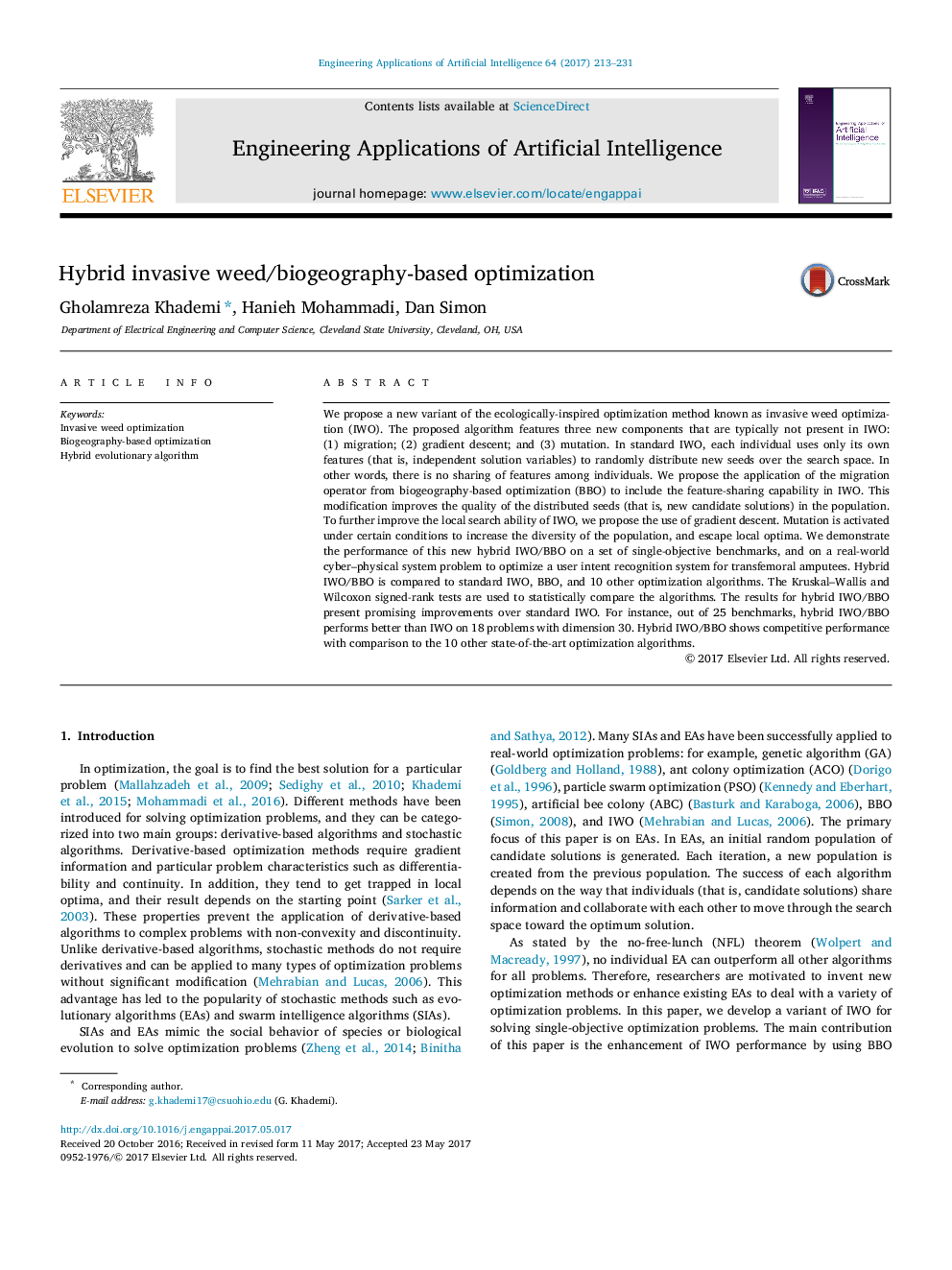| Article ID | Journal | Published Year | Pages | File Type |
|---|---|---|---|---|
| 4942658 | Engineering Applications of Artificial Intelligence | 2017 | 19 Pages |
Abstract
We propose a new variant of the ecologically-inspired optimization method known as invasive weed optimization (IWO). The proposed algorithm features three new components that are typically not present in IWO: (1)Â migration; (2)Â gradient descent; and (3)Â mutation. In standard IWO, each individual uses only its own features (that is, independent solution variables) to randomly distribute new seeds over the search space. In other words, there is no sharing of features among individuals. We propose the application of the migration operator from biogeography-based optimization (BBO) to include the feature-sharing capability in IWO. This modification improves the quality of the distributed seeds (that is, new candidate solutions) in the population. To further improve the local search ability of IWO, we propose the use of gradient descent. Mutation is activated under certain conditions to increase the diversity of the population, and escape local optima. We demonstrate the performance of this new hybrid IWO/BBO on a set of single-objective benchmarks, and on a real-world cyber-physical system problem to optimize a user intent recognition system for transfemoral amputees. Hybrid IWO/BBO is compared to standard IWO, BBO, and 10 other optimization algorithms. The Kruskal-Wallis and Wilcoxon signed-rank tests are used to statistically compare the algorithms. The results for hybrid IWO/BBO present promising improvements over standard IWO. For instance, out of 25 benchmarks, hybrid IWO/BBO performs better than IWO on 18 problems with dimension 30. Hybrid IWO/BBO shows competitive performance with comparison to the 10 other state-of-the-art optimization algorithms.
Related Topics
Physical Sciences and Engineering
Computer Science
Artificial Intelligence
Authors
Gholamreza Khademi, Hanieh Mohammadi, Dan Simon,
